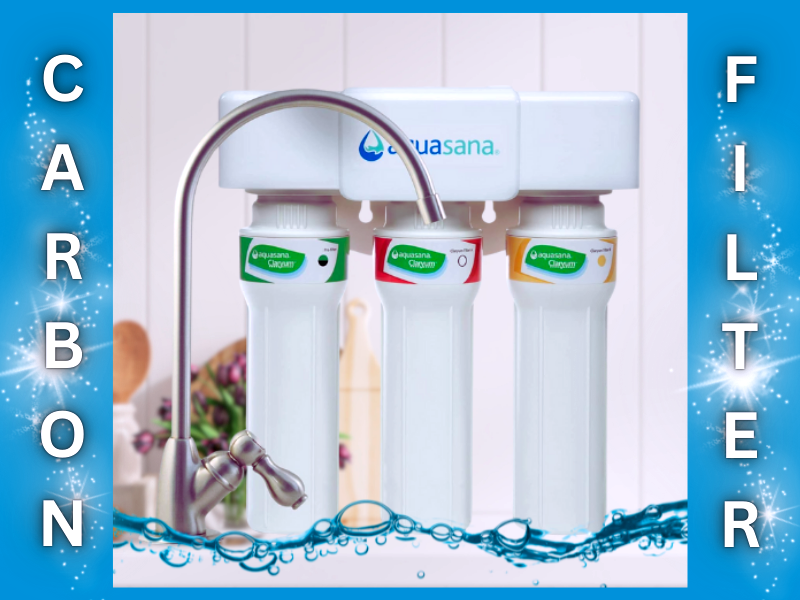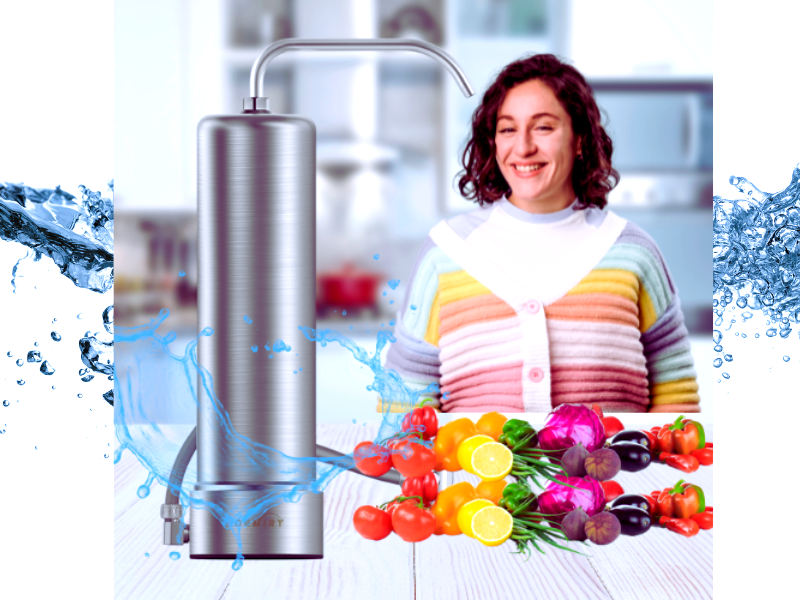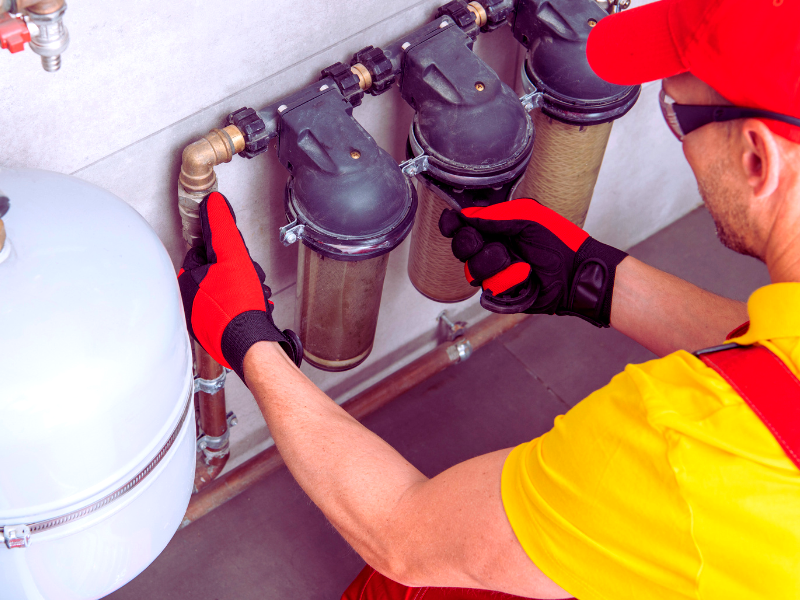Key Takeaways:
- Carbon filters are highly effective in removing a wide range of contaminants from drinking water.
- Different types of carbon filters, such as granular activated carbon (GAC) and carbon block filters, offer various benefits.
- Understanding the specific contaminants in your water supply can help you choose the most suitable carbon filter.
Carbon filters have become a popular choice for improving drinking water quality. These filters use activated carbon to remove impurities, making water safer and more pleasant to drink. But how effective are carbon filters for drinking water? Let's dive into the details.

How Do Carbon Filters Work?
Active carbon filters work on the adsorption principle, where contaminants stick to the surface of the activated carbon. This removes organic chemicals, chlorine, and other bad stuff from tap water. The large surface area of activated carbon can capture a lot of contaminants.
Activated carbon filters come in different forms, GAC (granular activated carbon) and carbon block filters. GAC filters are loose granules of activated carbon, and carbon block filters are compressed carbon particles. Both work, but carbon block filters have a higher contaminant removal rate because of their larger surface area.
Types of Carbon Filters
Granular Activated Carbon (GAC) Filters
Activated carbon water filters, including GAC filters, are used in many water filtration systems. These filters have loose granules of activated carbon that trap contaminants as water flows through them. GAC filters are good at removing chlorine, volatile organic compounds (VOCs), and bad taste from drinking water.
One advantage of GAC filters is that they can handle a lot of water. They’re often used as pre-filters in reverse osmosis systems to protect the more delicate membranes from chlorine and other chemicals. However, GAC filters may not be as effective at removing smaller particles and microbiological contaminants.
Carbon Block Filters
Carbon block filters are made by compressing activated carbon into a solid block. This design increases the surface area for adsorption, so these filters are better at removing a broader range of contaminants. Carbon block filters can remove chlorine, lead, pesticides, and other harmful chemicals from drinking water.
Because of their smaller pores, carbon block filters are also effective at removing microbiological contaminants like bacteria and cysts. They are often used in pitcher filters and under-sink water filtration systems to provide great-tasting water for drinking and cooking.
Benefits of Using Carbon Filters

Improved Taste and Odor
One of the biggest benefits of carbon filters is the taste and odor of the water. Chlorine, which is used to disinfect tap water, can leave a bad taste and smell. Carbon filters, often called charcoal filters, remove chlorine so the water tastes better.
Besides chlorine, charcoal filters can remove other compounds that cause bad taste and odor, such as hydrogen sulfide and organic chemicals. Thus, filtered water is more drinkable and cookable.
Removal of Harmful Contaminants
Carbon filters are good at removing many bad contaminants from drinking water. These include volatile organic compounds (VOCs), pesticides, herbicides, and other chemicals that can harm us. Coconut shell carbon, a type of activated carbon derived from a renewable resource, is particularly effective in filtering water, especially for removing trihalomethanes and improving taste. By removing these contaminants, carbon filters protect us from many health problems.
Activated carbon filters can also remove heavy metals like lead and mercury which can be harmful even at low levels. So carbon filters are a great choice for households that are concerned about their tap water.
Limitations of Carbon Filters

Incomplete Removal of Some Contaminants
While carbon filters are effective at removing many contaminants, they may not remove all types of impurities. For example, carbon filters are not effective at removing dissolved solids like salts and minerals, which require a reverse osmosis system to remove completely.
Also, carbon filters may not remove certain microbiological contaminants, like viruses. For complete water purification, you may need to use a combination of filtration methods, such as UV sterilization or reverse osmosis.
Filter Maintenance and Replacement
Maintenance and replacement are crucial to keeping carbon filters effective. Over time, activated carbon gets saturated with contaminants and loses its ability to adsorb new impurities. This can result in reduced filtration performance and allow contaminants to pass through the filter.
Filter replacement frequency depends on the type of filter and the water being treated. Always follow the manufacturer’s replacement schedule to ensure optimal performance.
Choosing the Right Carbon Filter

Assessing Your Water Quality
Before choosing a carbon filter, test your tap water. Water testing will tell you what contaminants are present in your water supply, and knowing the types and levels of contaminants will help you choose the right carbon filter.
Water testing kits are available for home use, or you can hire a professional to perform a more detailed analysis. Once you have the test results, you can choose a carbon filter that targets the contaminants in your water.
Considering Filter Types and Features
When choosing water filters, consider carbon filters' different types and features. Granular activated carbon (GAC) filters are suitable for general filtration needs, while carbon block filters have higher contaminant removal rates. Pitcher filters, under-sink systems, and whole-house filters are some options you can consider based on your needs.
Look for filters certified by reputable organizations like NSF International. These organizations ensure that the filters meet specific performance standards, which means they will remove the contaminants they claim to.
Installation and Maintenance Tips

Installing Carbon Filters
Installing a carbon filter is easy and can be done with basic tools. For pitcher filters, just follow the manufacturer’s instructions for assembly and use. Under-sink and whole-house filters may require more complex installation, but instructions are usually provided.
Ensure the filter is connected to the water supply and tighten all fittings. This will prevent leaks and ensure the water flows through the filter as intended.
Maintaining and Replacing Filters
Maintenance is key to carbon filter effectiveness. This includes cleaning and replacing filter cartridges periodically. Most manufacturers have guidelines on how often to replace the filters based on usage and water quality.
Monitor the filter’s performance. If you notice a decline in water quality or flow rate, it’s time to replace the filter. Proper maintenance will keep your carbon filter clean and provide safe drinking water.
Summary
Carbon filters are a great solution to improve drinking water quality. They work by adsorbing contaminants onto the surface of activated carbon and removing chemicals, chlorine, and other impurities. Different types of carbon filters like granular activated carbon (GAC) and carbon block filters have different benefits and are good for different filtration needs.
While carbon filters have some limitations, like incomplete removal of certain contaminants and the need for regular maintenance, they are still a popular choice for households who want to improve their tap water. By knowing your water quality and choosing the right filter, you can have clean and safe drinking water. To keep up with the latest water filter tips and offers, subscribe to our newsletter today!
FAQ
How often should I replace my carbon block water filters?
Filter replacement frequency depends on the type of filter and your water quality. Generally, it’s every 3 to 6 months but follow the manufacturer’s guidelines for specific recommendations.
Can carbon filters remove fluoride from drinking water?
Carbon filters don’t remove fluoride well. A reverse osmosis system or a fluoride filter is recommended for fluoride removal.
Are carbon filters good for drinking water?
Yes, carbon filters are suitable for drinking water. They remove many contaminants, such as chlorine, volatile organic compounds (VOCs), and heavy metals, making the water safe to drink. But make sure to maintain and replace them regularly.








